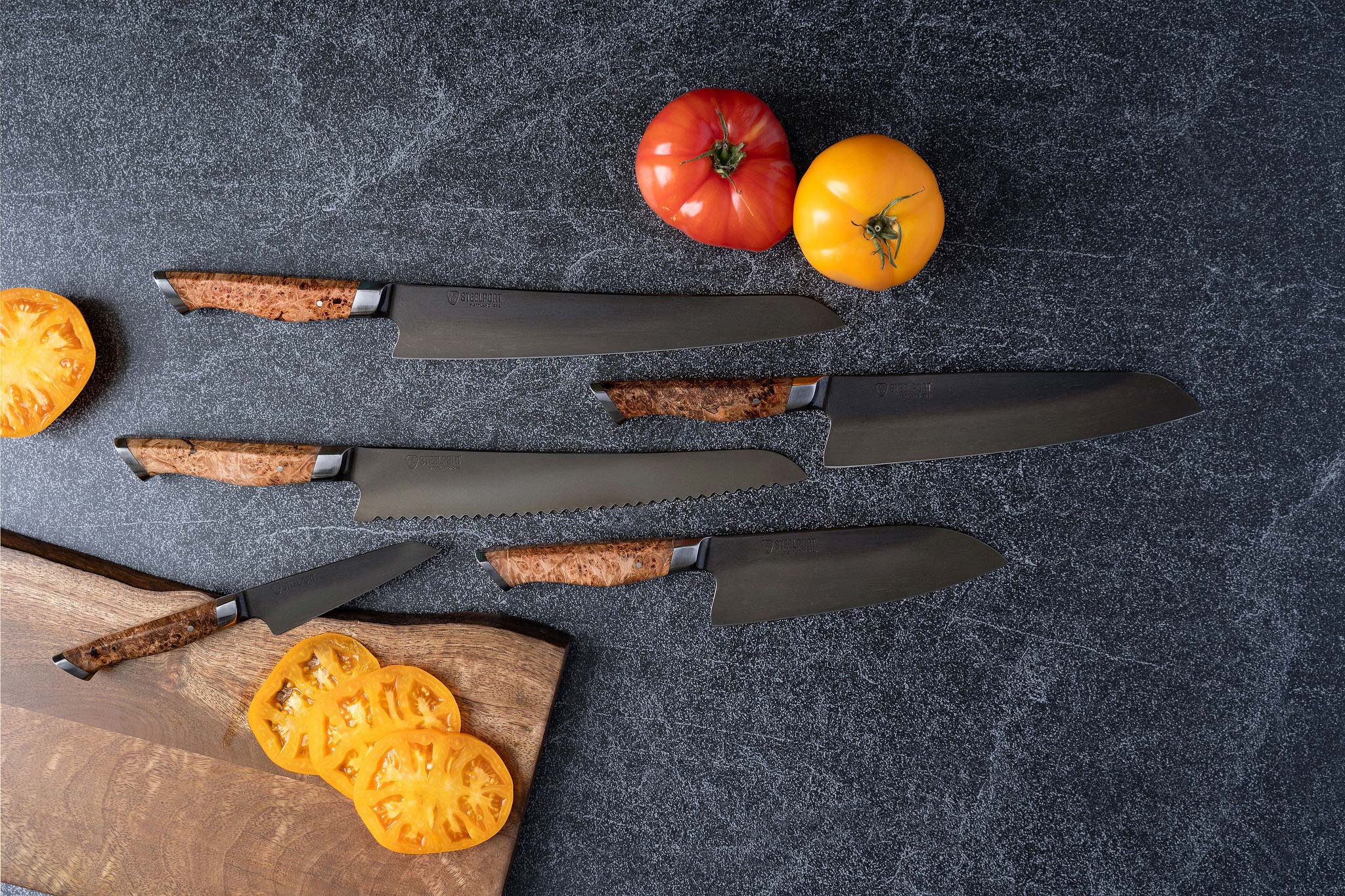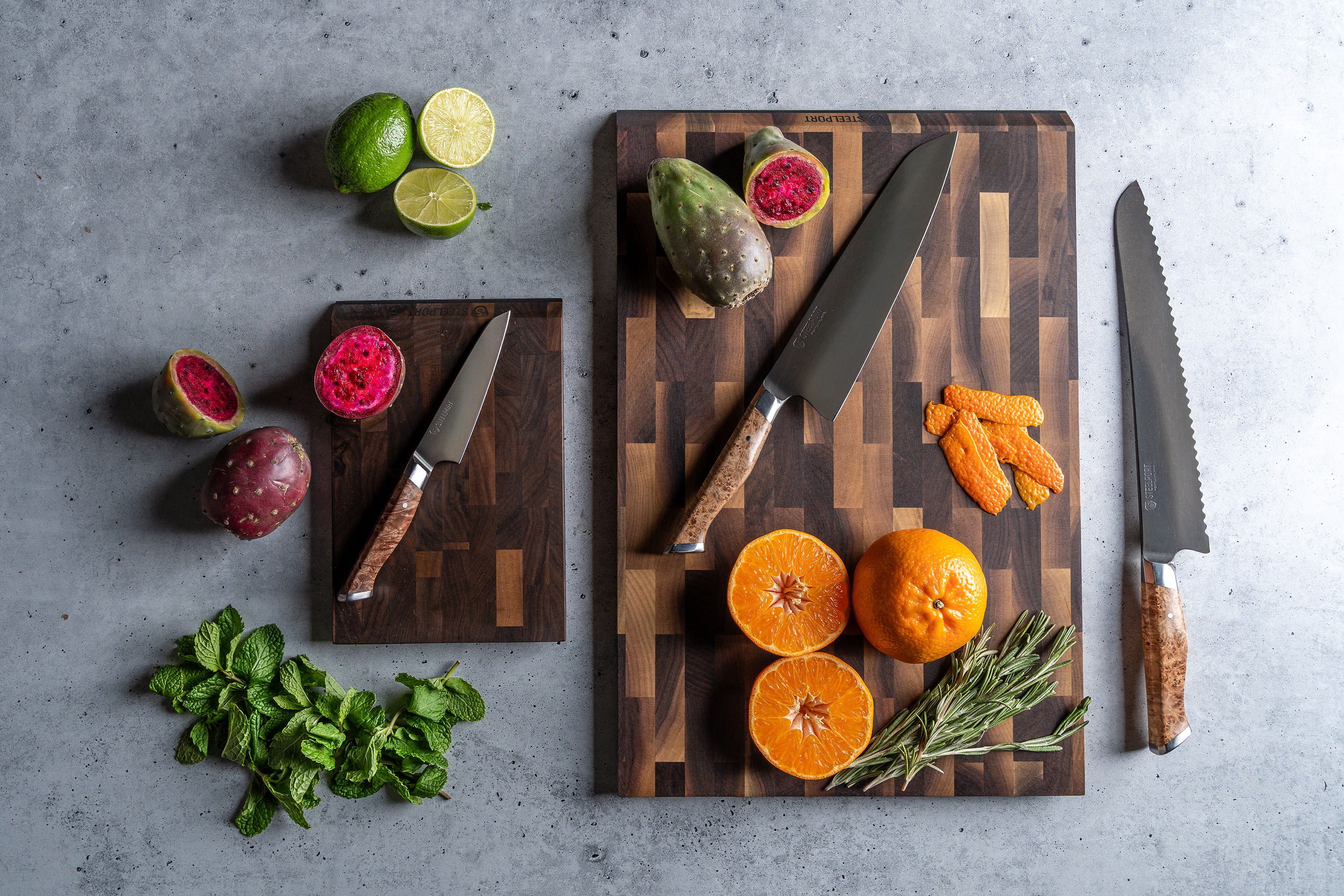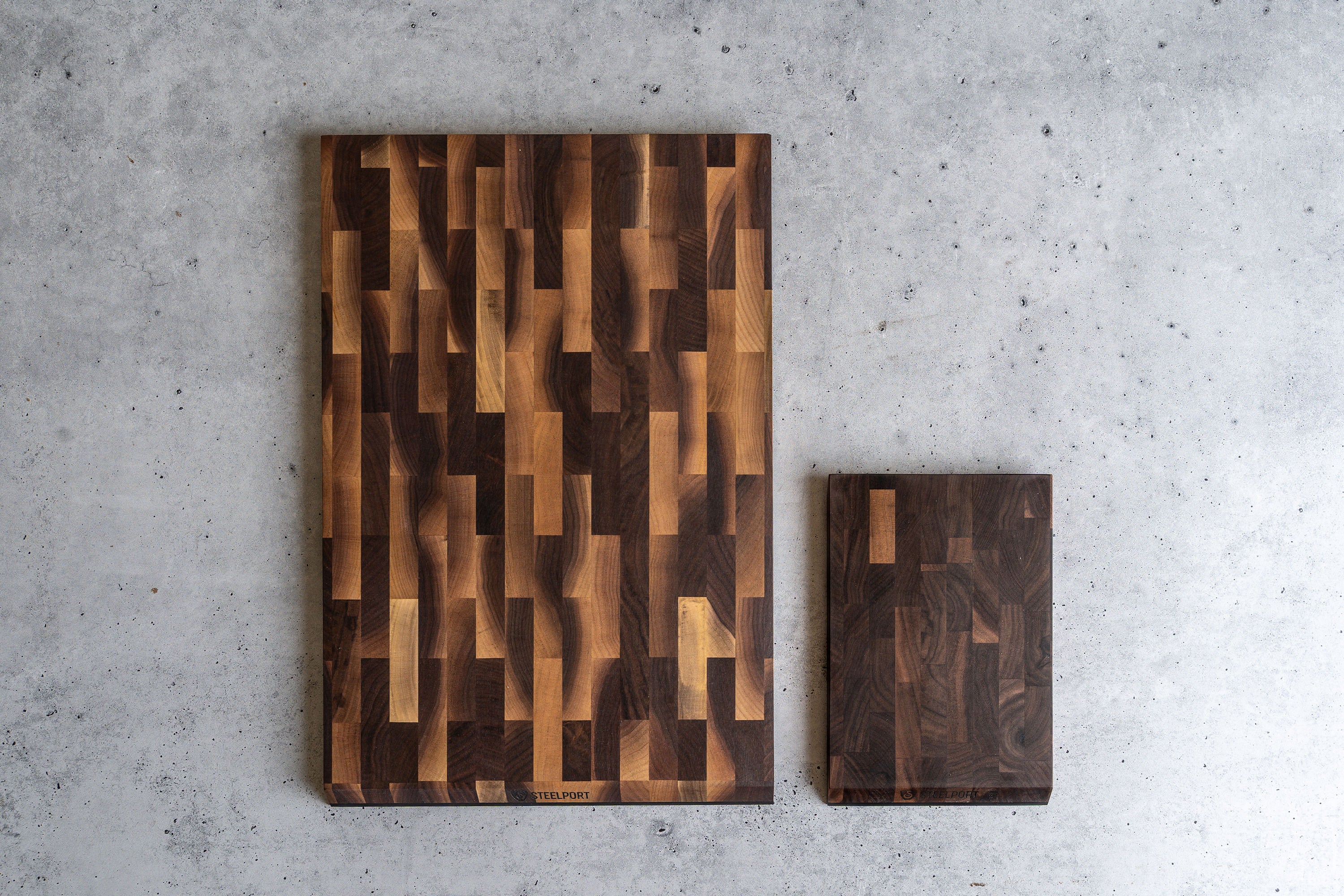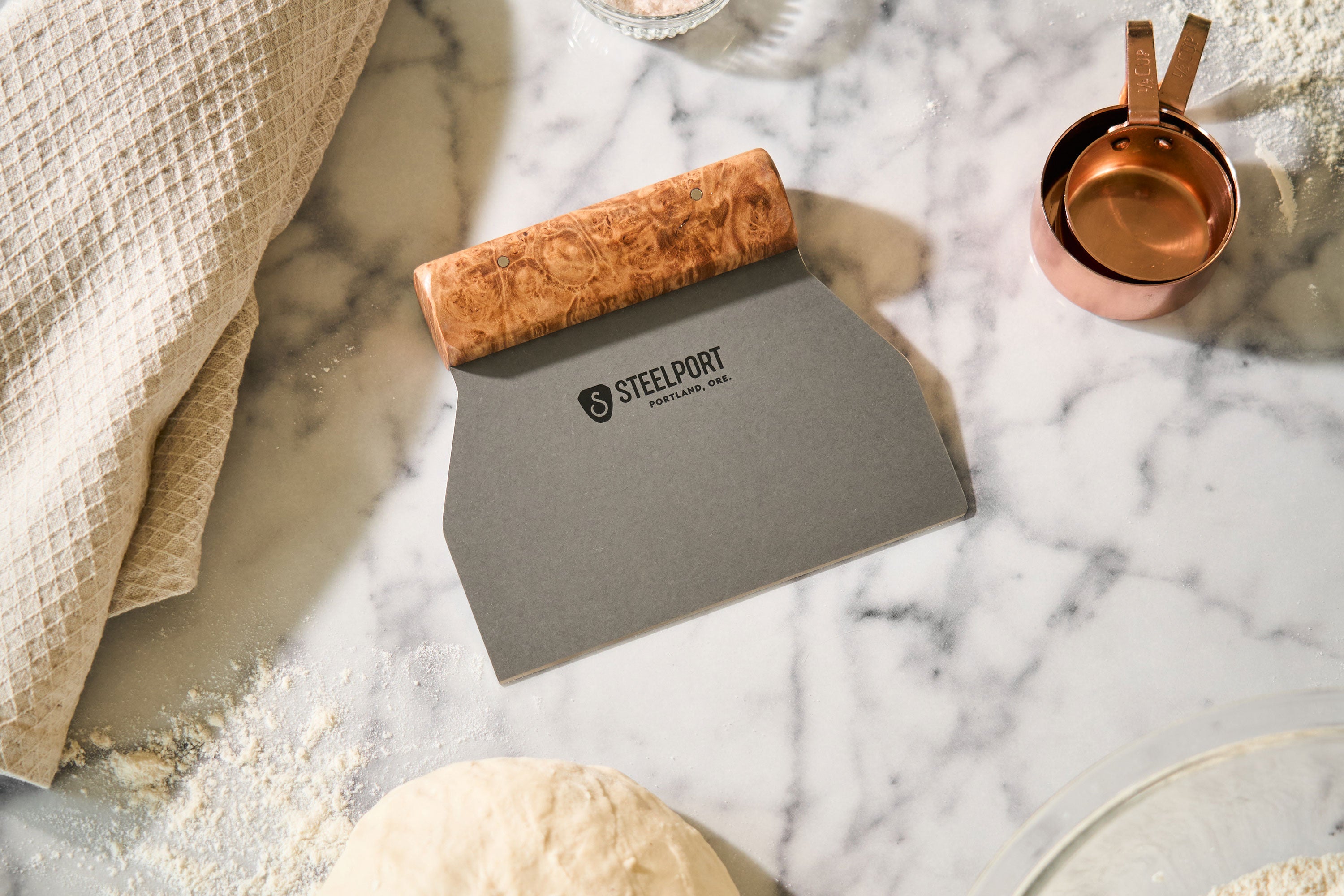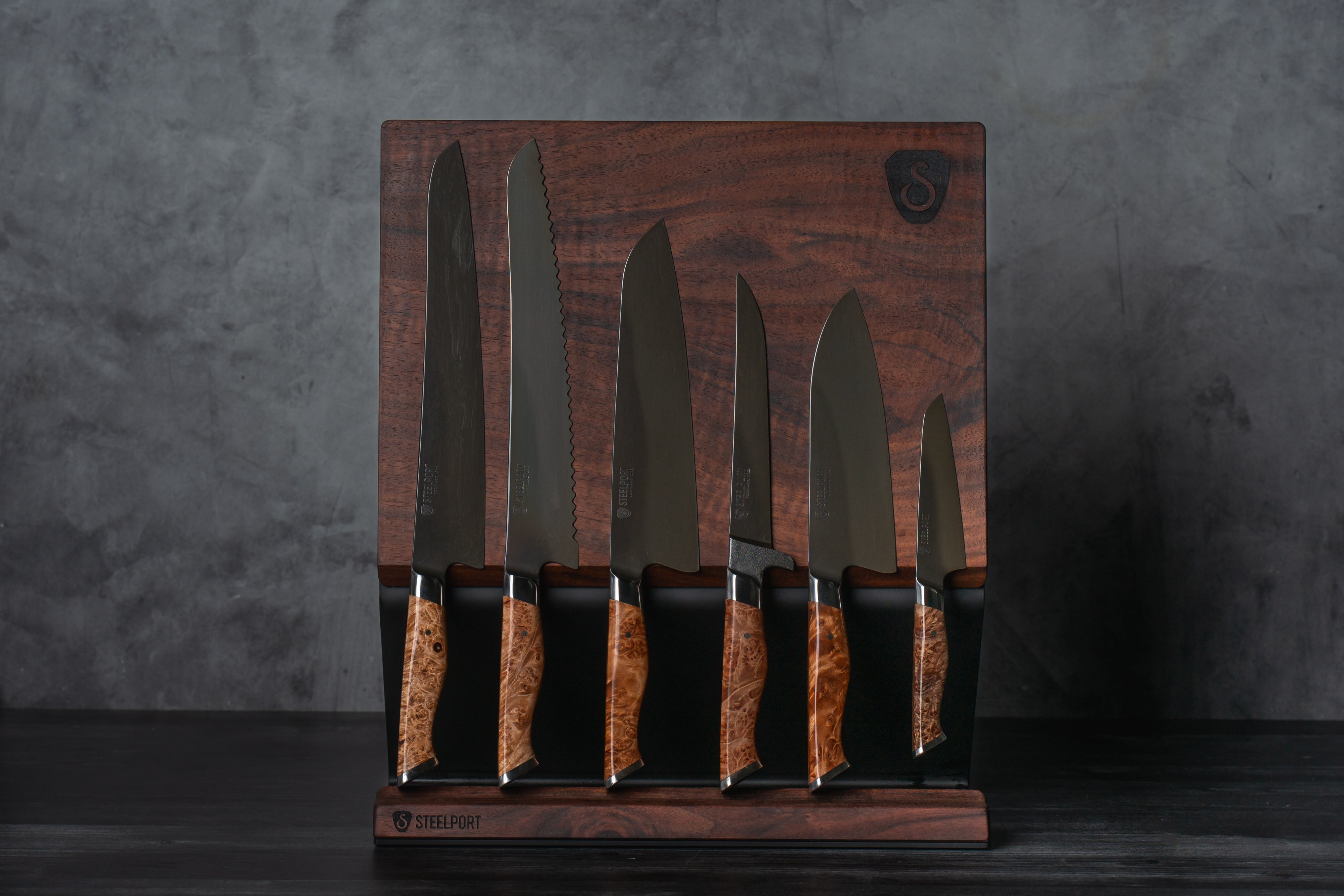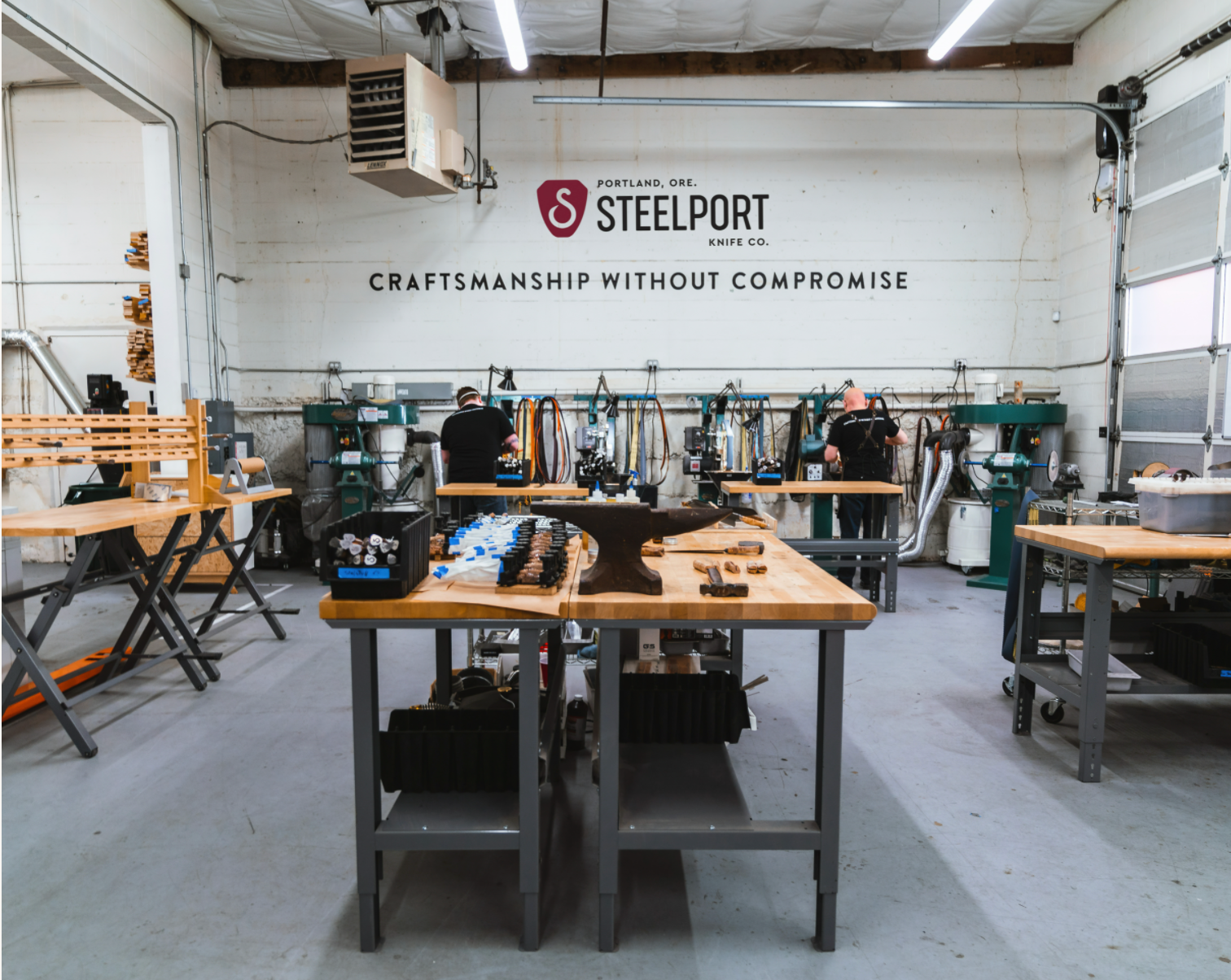Dumpling Philosophy with Bonnie Morales of Kachka
Chef Bonnie Morales brings a unique blend of expertise from both professional and home kitchens, and she's eager to share her insider tips and tricks with the STEELPORT community. Last month, we featured Bonnie in a Chef Spotlight that explored the vital role of culture, community, and tradition in crafting exceptional food. It also highlighted how STEELPORT knives align with these values in her culinary journey. If you missed it, take a moment to dive into Bonnie’s story and the history of her renowned restaurant, Kachka. Bonnie and her husband, Israel Morales, opened Kachka in 2014, creating a true reflection of the Russian Pyanka—a celebration centered around drinks, great food, and meaningful connection. “Toast, clink, drink, eat, repeat.” – the essence of the Pyanka, has also become the essence of the experience they've crafted. Their vision has garnered widespread recognition, with Kachka earning a James Beard semi-finalist nod for Best New Restaurant and a finalist position for Best Chef: Northwest. Since its inception, Bonnie has expanded her impact by releasing her cookbook Kachka and launching Kachka Lavka, a Russian-inspired market offering housemade and imported goods, kitchen tools, and a deli lunch counter.

As Bonnie continues to shape the culinary landscape with her passion for tradition and community, the STEELPORT team had the pleasure of chatting with her about the journey behind Kachka’s signature dumplings, the role of family in her cooking, and the tools that help her bring it all to life.
Can we say, Kachka is famous for dumplings?
I want us to be famous for dumplings!
What’s so special about dumplings at Kachka? Why did you end up with dumplings to begin with?
It’s because Israel says I tricked him into falling in love with me through dumplings. When we first started dating we were both working in restaurants, coming home super, super, super late. I would always have dumplings in my freezer and little bits of this and that. I would cook for us when we’d get home and he was just blown away at how delicious they were. We were always talking about how this style of dumpling isn’t well known. People don’t appreciate them and we wanted to share them with everyone. These dumplings—pelmeni and vareniki—are undeniably something special, and Israel might just be onto something with his sweet story. But beyond the romance, Bonnie approaches their creation with great care, focusing on every detail to ensure they’re perfect. "There are a few things that are important to me," she explains.
Shaping Pelmeni & Vareniki Dumplings

First Bonnie talks about the shaping process. “We use something called a pelmenitsa which is a hexagonal mold you use to make the dumplings.” She pauses, then adds, “You know, a lot of the time people talk about things being made by hand being better, but when you have dumplings shaped by hand there’s always a knot or a pinch-point. That means you have an uneven amount of dough in that spot and it always is going to be cooked a little differently than the rest of it. But, when you use this thing called a pelmenitsa you have an even application of dough to filling all the way across and it makes an even cut. I think that’s important.”
Crafting the Perfect Dumpling Filling
“I’m also really obsessed with how meat has to be treated. Ground meat has to be emulsified just the right amount when you put it in a filling and most people don’t do that, and you end up with something really grainy. But if you have a proper emulsification it makes a really juicy filling. So that’s really important to me and we focus on that.” Finally, it’s all about simplicity. “We don’t mess around with our basic recipes; they’re purely flavors from my childhood. If you have something that’s made with very few ingredients, there’s nothing to hide behind and so the technique has to be really good, people appreciate that – rather than flashy ingredients and new stuff all the time.”
Cooking Methods Passed Down at Home
Chef Bonnie not only brings the flavors from her childhood, but also the techniques she learned cooking at home with family. “This is more at home, than in the [professional] kitchen, but I actually intentionally keep my paring knife pretty dull. My mom is not a professionally trained cook. She doesn’t use a cutting board. She cuts almost everything in her hand with her paring knife, and I do that. So if the blade on the paring knife is too sharp, you’ll cut your finger. I use the point of my paring knife in a different way. The heel and the point are for cutting through stuff and the flat of it I use pressure to cut a cucumber or a potato. That’s like the opposite of what professionals [do], because at home you’re not making huge batches. One cucumber, one potato; this is much faster. And you go directly into the bowl.”

A word of caution if you plan to try this tip: the STEELPORT Paring Knife comes extremely sharp out of the box, so it’s important to be mindful when using it in this manner! Bonnie notes that it would be great for cutting tomatoes, though. “You shouldn’t need a serrated knife to cut a tomato. The only reason people at home do it is because their knives aren’t sharp enough.” If you want to cook like Bonnie, you can start with her favorite STEELPORT knives: the 8” Chef Knife and the 4” Paring Knife. And for a taste of her famous dumplings, visit Kachka to experience them firsthand. While you're there, don't forget to stop by Kachka Lavka upstairs, where you can pick up a pelmenitsa to make your own dumplings at home.

